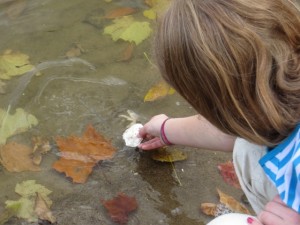 Peter Boogaart, Caring for Creation Coordinator
Peter Boogaart, Caring for Creation Coordinator
People who think they know everything are very offensive to those of us who do! If you’re laughing you get the point. Decision making isn’t easy and rarely is there going to be an occasion when everyone agrees. Nevertheless, decisions are important and wrong decisions can be disastrous.
I write this having just begun a reading of James Gustave Speth’s, America The Possible: Manifesto For A New Economy. Speth is a longtime activist and environmentalist; during his career he’s been a significant contributor, including at the White House level. Speth, however, has had enough. We haven’t stemmed the tide of environmental degradation and there doesn’t seem to be any appetite for doing so either.
For Speth, “people who think they know everything” are the cheerleaders for American style capitalism and its fervent belief in constant growth; a faith which declines to acknowledge any evidence to the contrary. The evidence, as he cites it, is substantial. We are in the process of exhausting the resources of our finite planet. Still, if you’re inclined to be one of “those of us who do,” why listen?
So the challenge becomes, “Listen, yes; but to whom?” In a political atmosphere of spin control and big money lobbying, who can you trust? I’d like to suggest that for us as Christians, we listen to our Bible. For me, the guide for listening comes from Deuteronomy: there’s a way that leads to life and a way that leads to death–choose life.
Simply use your eyes and acknowledge what you see. If what you see is death littering the landscape, then you’re going the wrong way and need to hear God’s call to turn around. Certainly, in a place like Syria, littered landscape is an actual reality. What exasperates people in the environmental movement is the death they see everywhere: mass extinctions, desertification, ocean acidification, toxic discharges, and accelerating climate change. These are the sounds of a world groaning under the weight of destruction.
Despair is not an option, not for Christian people. We are the ones who know that groaning, loss, and death is not final; we know that from our own personal experience. We are the people who were lost and in God’s grace, found again. Our acts of caring for creation can be an extension of the grace that was first shown to us, a way of turning to the path that leads to life.
